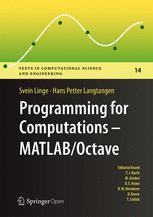It almost always comes up an hour into a road trip. Or a lazy Sunday afternoon. Or as they close their iPad folios1.
“I’m bored.”
My standard response? The title gives it away:
“Learn to be bored.”
It is a rarity in modern life. Experiments have shown that many people, and a majority of men, would rather literally shock themselves than be left undistracted. Wondering about an obscure fact or event has been made obsolete, first by Google and web search and now even more so with ChatGPT and AI-powered research. It is legitimately difficult to keep time for quiet solitude; even if we weren’t constantly busy2, the urge to be entertained is constant and unrelenting.
Those of us who grew up before phones and the internet remember the simple, pure act of spacing out on a simmering summer day, in an unventilated classroom, trying to make it to the bell signaling the end of classes, actively ignoring proximate goings-on to make the time go by just a little faster.
I’m not one to expose the virtues of norms and behaviors of yesteryear for simple nostalgia and “this is the way we used to do it, dammit.” But there are plenty of articles handwringing over the notion that phones and apps have altered our levels of patience and attention spans. People lament how easy and common it is for us to reach for our phones whenever there’s a couple of seconds of downtime—so that we can eliminate it completely—but of course none of us can help ourselves.
The situation is a bit different for kids. In part, because we parents like to impart what we know to be best practice even when we hypocritically don’t hold ourselves to the same standards. Also, because children’s brains don’t have the regulatory bits built out, they’ll take as much screen time as you’ll give them. I’ve taken the approach of getting my kids to read as much as they can, with unlimited Kindle time along with controlled iPad and PC gaming sessions, with mixed success. I know most parents don’t bother, as they themselves are constantly on their phones, and after a certain point, the kids rightfully call them out for the double standard.
But aside from pushing reading as an alternative form of entertainment that’s admittedly less engaging than YouTube shorts and Minecraft/Roblox/Fortnite, the skill I really want them to hone—and for myself as well—is the ability to be lost in thought. It sounds quaint in the year 2025: daydreaming and thinking in isolation, without engaging with external forms of stimulus, for any extended period of time. The kids usually give up after 20–30 seconds of silence and peering out the car windows at the bland scenery.
Yet it’s the act of mulling things over, of letting an idea bounce around and settle in our heads, that we produce connections and insight that wouldn’t be immediately obvious. The smart notes system that I advocated a few years ago follows the same principles, in that ideas and thoughts gain depth when they’re given more time. In fact, reasoning AI models mimic this process: they “think” about an answer by generating a breadth of possibilities and then trimming down less promising paths of “thought” until they arrive at a more complete, deeper answer.
So yeah, boredom isn’t a bad thing, as respite from constant and crushing stimulation. The next level? Mediation—the ability to rest quietly and think about nothing.
.png)



